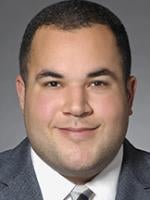The United States Court of Appeals for the D.C. Circuit recently affirmed a district court decision holding that the excise tax imposed under 26 USC § 4371 does not apply to wholly foreign retrocession contracts. The term “retrocession” refers to transactions in which one reinsurer buys or sells reinsurance to another reinsurer, and is sometimes referred to as “second-level” reinsurance (in contrast to the provision of reinsurance to an insurance company). The case, Validus Reinsurance, Ltd. v. U.S., No. 1:13-cv-00109, 2015 U.S. App. LEXIS 8602 (D.C. Cir. May 26, 2015), is a relief to the industry because it excludes wholly foreign retrocession contracts from U.S. excise taxes even if risks are assumed from U.S. insurers. It also prevents the possibility of a “cascading” tax where each additional level of reinsurance would result in an additional excise tax.
The 19 page court opinion noted that the relevant language in the statute is ambiguous, and found that each party had raised a reasonable interpretation of what the statute meant. A focus of the court’s analysis was on what the term “covered” meant in the context of reinsurance. In considering the meaning of “covered,” the court looked to dictionary definitions, statutory materials and case law in considering what meaning would be most appropriate in the insurance context. Ultimately, however, the court was unable to determine if the term was intended to include both direct and indirect coverage of U.S. risks.
The court resolved the ambiguity by applying a presumption against extraterritoriality. This presumption against extraterritoriality is consistent with U.S. federal income taxation as a whole, which imposes taxes on worldwide income only on U.S. persons. Non-U.S. persons are generally only subject to taxation on income for which there is a U.S. connection.
By basing its decision on the presumption against extraterritoriality, the court narrowed the possible scope of the lower court’s decision that it affirmed. The district court holding would have prevented the application of the excise tax to retrocession transactions between U.S. reinsurance companies and non-U.S. reinsurance companies.
The decision of the appeals court related to only retrocession transactions between nonadmitted non-U.S reinsurers, but some commentators have asserted that it could also be read to apply to reinsurance transactions involving non-U.S. counterparties where U.S. risks are involved. By statute, there is also an exemption from the excise tax for amounts received by non-U.S. insurers that are effectively connected with a trade or business in the U.S. unless such amounts are exempt from tax under a treaty.
The government could move for a rehearing of the case by the Court of Appeals sitting en banc or petition the Supreme Court for certiorari. The IRS is not likely to begin processing refund claims for the excise tax before it decides Whether to appeal. Nevertheless, reinsurers that have paid the excise tax in transactions that may be covered by the decision and that have not sought refunds should seek to file refund claims sooner rather than later, so that the claims are not barred by the statute of limitations.





 />i
/>i
